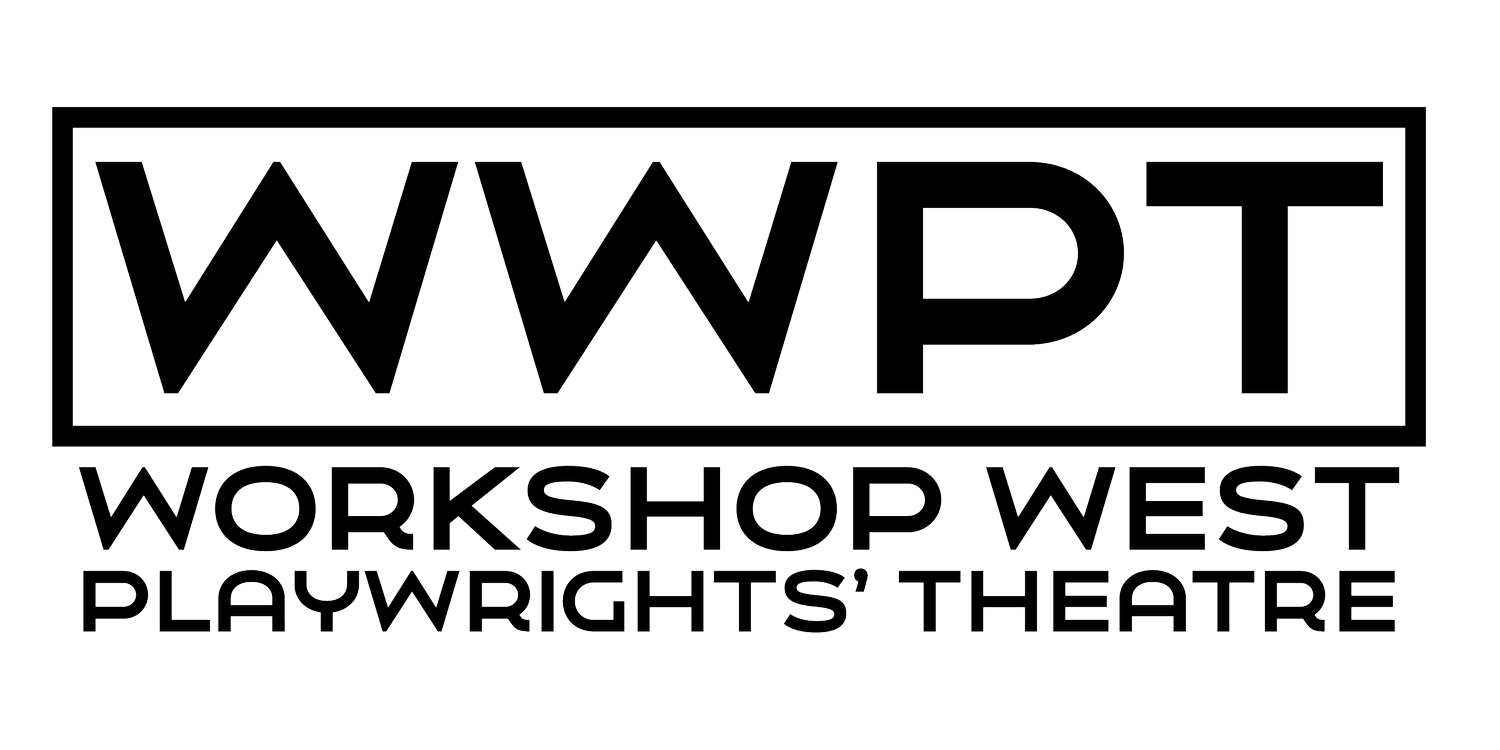Playwrights on their plays.
We’ve reached the end of another season here at Workshop West and we wanted to shine the spotlight back on our incredible playwrights of our Borderlands season. Below you’ll find an interview with Catherine-Anne Toupin and Chris Campbell about Mob, and playwrights notes from David Gagnon Walker (This is the Story of the Child Ruled by Fear), and Conni Massing (Dead Letter).
We hope you’ve enjoyed this season as much as we have.
“MOB is a play about language, the way it is used online, and the new types of violence that the internet facilitates and enables via the words we write in the shadows. It is an intoxicating whirlwind of contradictions, where black turns into white in a storm of rhythmic and incisive dialogue.” -Heather Inglis (director)
Watch Catherine-Anne Toupin and Chris Campbell discuss Mob here
This is the Story of the Child Ruled by Fear
I get really nervous fifteen minutes before every performance of this show.
We’re on our eighth run now and that doesn’t seem to change. I’m trying to make friends with the feeling. It’s sort of what the show is about.
My shows are mysterious to me, and I’m usually not very good at saying what they’re about. (Presenters and journalists and people at dinner parties love this about me.) With this one, I’ve at least done myself the favour of putting some pretty clear hints in the title.
I get really nervous before every performance, and I know some audience members do too. What’s unusual about this show is that I can’t perform it without seven of you agreeing to help me read a story out loud. That’s a nerve-wracking thing to ask. It’s a totally different show every night, with totally different people in all the starring roles, trying something new and making exciting discoveries. I think it’s wonderful every single time.
I tell the story with the audience. That’s especially true of this show, but I think it’s also true of all live performance. I’ve never seen a live work of art that didn’t feel to me like it was being created in the moment by everyone present, performers and audiences and volunteers and venue staff, all their energies and thoughts and feelings swirling together into this baffling, shimmering thing we call “a show”. I really like thinking about that. It’s why I do this stuff.
I have loved taking this show around Canada, but bringing it back home feels special. I’m from Edmonton, and everything I make is informed in some way by the spirit of this place. I tell a few Edmonton stories in the show. Maybe you were there for one of them.
Thank you very much for being here, for trusting us with an hour of your time, and for helping us tell this story. We hope you enjoy it.
David Gagnon Walker
Artistic Producer, Strange Victory Performance
Dead Letter
A while back, a friend mentioned to me that he’d received a piece of personal mail for a previous tenant, many years after that person had moved out. I discovered that these lost-in-space pieces of mail are referred to (by the post office) as “dead letters.” In addition to loving the image conjured by the term, I was also intrigued by the mystery of where the letter had been all those years. Of course there are many practical reasons why mail is undelivered or misdelivered, but I was far more interested in the dramatic questions arising out of this. What were the consequences of the letter never reaching its destination? Heartbreak, misunderstanding, missed opportunities? And from there, it was a short journey to the notion that the long-delayed delivery could be a kind of message from the universe.
Around the same time, I became fascinated with the whole notion of “everyday” mysteries. Single socks that lose their mates between washer and dryer. Tupperware lids that get separated from their bottoms. Scarves, earrings, coffee mugs that disappear into the ether. These losses don’t really even register for most of us, they’re mildly irritating at best. But I wondered what would happen if someone became obsessed with solving these mundane little mysteries. For Amy, the central character of Dead Letter, a missing sock triggers a relentless search for meaning, and as I worked on an early draft of the play, I realized that Amy had her own reasons for wanting messages from the universe. With that, the story began to move into different territory, riding a rail between comedy and sorrow. In other words, life on earth as we know it.
I started writing Dead Letter in a playwrights unit facilitated by Heather Inglis during the pandemic, where I benefited greatly from the questions and comments of the other writers in the group. A few months later, just as I was wondering how to carry on with the project, Heather reached out and offered me what I needed most: a deadline. This translated into the best kind of pressure–a bit of accountability and an affirmation that the idea was of interest. From there the play went on to many more drafts, inspired by workshops and readings at Script Salon and Springboards 2023, and followed by the gift of being included in this WWPT season. These last few weeks, I have had the pure joy of working with some of the most generous and talented artists in our amazing community. No matter how long I’m at this, I will never stop marveling at the magic of this coming together to bring an idea to life on stage. I am so grateful that we’re finally here - now – with you.
Conni Massing
Playwright, Dead Letter

